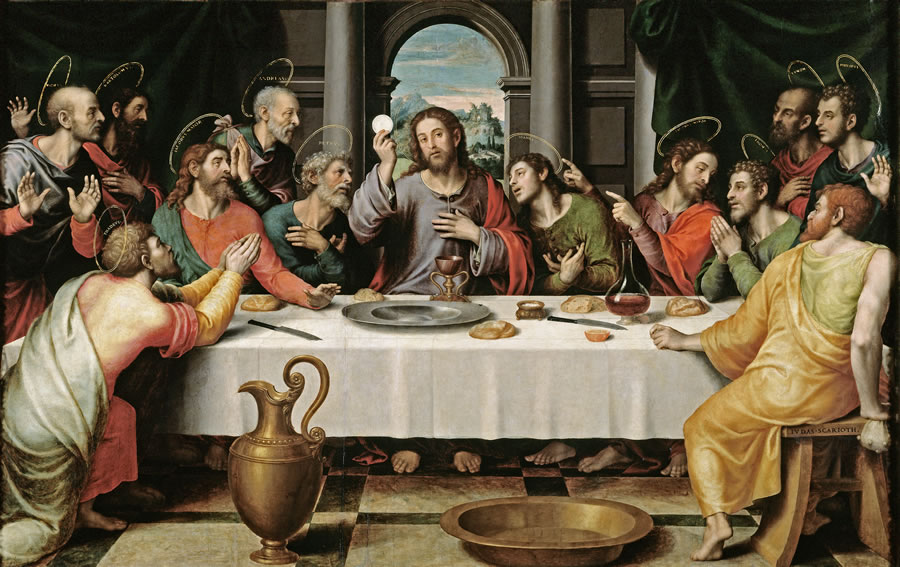St. Francis of Assisi Weekly Reflections

What I say to you in the Darkness, speak in the Light
06-25-2017Weekly ReflectionWe Celebrate Worship Resource, Vol. 42, No. 2“Fear no one,” Jesus says to the Twelve, as he sends them out “to the lost sheep of the house of Israel” (Matthew 10:26, 6). This Gospel comes from the middle of his second great speech in Matthew’s Gospel (Matthew 9:36—10:42), called the missionary discourse. Jesus is instructing the Twelve on what to do on their mission. Since we are all called to be evangelizers (“proclaimers”) and witnesses to the gospel, these words have meaning for us. “Do not be afraid” is often heard in the Gospels. Even though they are sent to their own people here, there is no reason to be afraid, as the prophet Jeremiah also realized in his day, as his friends turned against him for preaching God’s word to them. Jesus saw that his followers would suffer, just as he was going to do. So he encourages his followers not to let fear control them. The God who watches over sparrows, who knows the number of hairs on our heads, will watch over us. God sent Jesus to save us, and Jesus promises that if we acknowledge him before others, he will acknowledge us before the Father.
When have you let fear silence you as a believer?
READ MORETwelfth Sunday in Ordinary Time: The reassurance of faith
06-25-2017Question of the Week- Reading I: Jeremiah 20:10–13 (Jeremiah's faith in crisis)
- Reading II: Romans 5:12–15 (mankind's sin through Adam)
- Gospel: Matthew 10:26–33 (reassurance to the Twelve)
- Key Passage: Do not fear those who kill the body but cannot kill the soul. (Matthew 10:28a)
- Adult: When has your faith in Jesus been most seriously tested?
- Child: What could you do to encourage someone who is feeling hurt?

I am the LIVING bread that came down from HEAVEN
06-18-2017Weekly ReflectionWe Celebrate Worship Resource, Vol. 42, No. 2This Sunday we celebrate our intimate communication with Christ and with all the members of the Body of Christ in the Eucharist. Just as Baptism brings us into sharing the life of the Trinity, celebrated last Sunday, so the Eucharist brings us into a most intimate sharing in the mystery of Christ’s saving death and resurrection. In the Gospel of John, Jesus declares that he himself is the bread come down from heaven, and that the one who eats his flesh and drinks his blood has eternal life even now and will live forever (cf. John 6:51, 54). Paul underlines the Eucharist as a meal that allows us to participate in the body and blood of the Lord and that signals our unity with each other, holding up the one loaf of bread as a sign of many becoming one. This sacrament empowers us to give ourselves in service to the world. We are fed by both the word of God, as Moses reminds the people about to enter the Promised Land, and by the sacrament of the Eucharist.
How has the Eucharist been a source of nourishment for you, both as an individual and as a member of the body of Christ?
READ MOREBread, Cup, Body, Blood
06-18-2017Liturgy CornerFr. Paul Turner © 2001 Resource Publications, Inc.Bread and wine become the Body and Blood of Christ during the Eucharistic prayer at Mass. The Holy Spirit works this miracle in the presence of the faithful, who join the priest in silence and song. Belief in the real presence of Christ in the Eucharist in central to Catholic faith. In the past some have doubted this belief, but the church has always responded with unwavering conviction, founded on the Bible. “This is my body. This is my blood” (Mt 26: 26,28). “The bread that I will give is my flesh for the life of the world” (Jn 6:51). “My flesh is true food and my blood is true drink” (Jn 6:55).
The word “bread” in these Scriptures does not diminish our faith that the bread is the Body of Christ. The liturgy also used “bread and cup” to refer to the Body and Blood of Christ. The “Lamb of God” accompanies a ritual the missal calls “the breaking of the bread.” Some of our hymns also refer to bread and wine, but in the context of the Mass the meaning remains true to Catholic teaching. What we eat and drink is the Body and Blood of Christ.
READ MOREBody and Blood of Christ: Bread for others
06-18-2017Question of the Week- Reading I: Deuteronomy 8:2-3, 14-16 (God's care)
- Reading II: 1 Corinthians 10:16-17 (the Eucharist vs. pagan sacrifices)
- Gospel: John 6:51-58 (the living bread)
- Key Passage: I am the living bread that came down from heaven. Whoever eats of this bread will live forever; and the bread that I will give for the life of the world is my flesh. (John 6:51)
- Adult: What does it mean for you right now to be bread for others as Jesus was?
- Child: In what ways can Jesus' presence in the Eucharist help you do good things for others?
Introductory Rites
06-11-2017Liturgy CornerFr. Paul Turner © 2001 Resource Publications, Inc.The introductory rites help the assembly become a worshiping community. They also prepare us to hear God's word and celebrate the Eucharist. There are several elements to the introductory rites of Mass. The cantor or another minister may introduce the liturgy. We sing the entrance song and make the sign of the cross. The presider greets us. The penitential rite or rite of blessing and sprinkling holy water follow. We sing the Glory to God. Finally, the presider offers the opening prayer. A lot happens in just a few minutes.
READ MORETrinity Sunday: A God of love
06-11-2017Question of the Week- Reading I: Exodus 34:4-6, 8-9 (renewal of the tablets)
- Reading II: 2 Corinthians 13:11-13 (farewell)
- Gospel: John 3:16-18 (belief in the Son sent by the Father)
- Key Passage: For God so loved the world that he gave his only Son, so that everyone who believes in him may not perish but may have eternal life. (John 3:16)
- Adult: We live within the Trinity whenever we live in love. How does this mystery connect to your daily life?
- Child: How do you choose to live as a more loving person?

We return to “Ordinary Time” today (which means “numbered time” - tenth week, eleventh week, etc.) by celebrating the central mystery of our faith: the Trinity, God as one God yet three distinct persons. Makes your head hurt? Our readings help take us into the mystery of our God whom we name as the Father and the Son and the Holy Spirit (the “ands” are important, reminding us of three distinct persons). God helps Moses to understand what it means to call God “Lord,” identifying himself to be merciful, gracious, slow to anger, rich in kindness and fidelity. Mercy is the word that best captures the God of the Old Testament. God showed the divine face in the person of God’s Son Jesus Christ, so that is where we look to “see” God. The Son came to reveal the Father to us. And both the Father and the Son sent the Holy Spirit to draw us into the life and love of the Trinity. This all began at our Baptism and continues wherever we worship God by celebrating the Eucharist. Still not clear? Well, keep praying, “Glory to the Father, and to the Son, and to the Holy Spirit...”
How is God leading you to knowing and living this mystery?
READ MOREPentecost: Sent to serve
06-04-2017Question of the Week- Reading I: Acts 2:1-11 (descent of the Holy Spirit)
- Reading II: 1 Corinthians 12:3-7, 12-13 (many gifts, one Spirit, and the analogy of the body)
- Gospel: John 20:19-23 (appearance to the disciples)
- Key Passage: Jesus said to them again, "Peace be with you. As the Father has sent me, so I send you." When he had said this, he breathed on them and said to them, "Receive the Holy Spirit." (John 20:21–22)
- Adult: What important work does Jesus ask of you at this time in your life?
- Child: How would Jesus want you to treat your friends and family this week?

Pentecost: Newness, Harmony and Mission
06-04-2017Weekly ReflectionWe Celebrate Worship Resource, Vol. 42, No. 2Pope Francis has said that Pentecost brought three things to the community waiting for it: newness, harmony, and mission. Of course, something new first happened with the coming of Christ: God became human. Then, something new happened on Easter: Jesus who had been crucified and buried, did not remain dead. God raised him. Then again, for the third time, something happened. The Holy Spirit came, bringing a breath of fresh air that blew them out of the house, transforming them harmoniously into the body of Christ, and inflaming them to preach Jesus as Lord, the Son of God. The important role of the Spirit is summed up in Paul's words, "No none can say, 'Jesus is Lord,' except by the Holy Spirit...For in one Spirit we were all baptized into one body...and we were all given to drink of one Spirit" (1 Corinthians 12:3b, 13). This Spirit brings us peace and joy, along with the mission of bringing God's forgiveness to all who would receive it. Pray today's Sequence.
Which of the Spirit's many gifts do you need most at this time: light, comfort, refreshment, rest, coolness, healing , strength, warmth, guidance, joy?
READ MORE